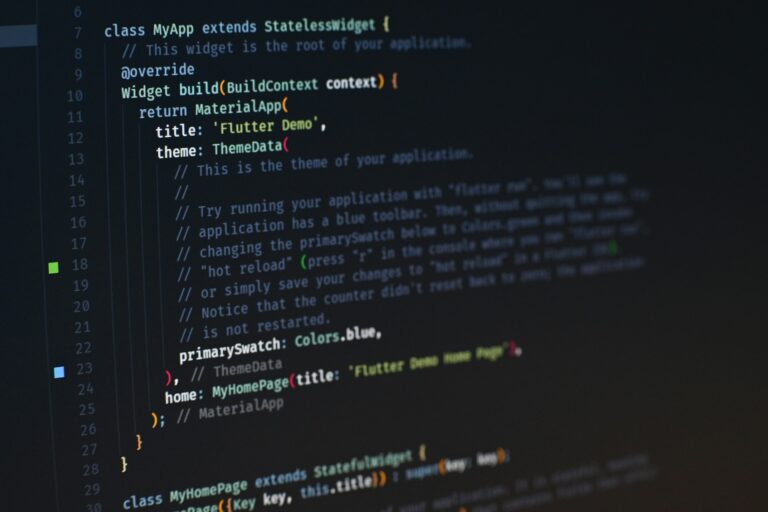Research shows that educational institutions using custom Learning Management Systems (LMS) achieve significantly higher student engagement rates than those relying on standard solutions. Custom LMS development stands out as a game-changing approach for educational administrators seeking to enhance learning outcomes while efficiently managing academic operations. These specialized platforms offer precise functionality aligned with each institution’s unique requirements, from smart grading automation to personalized learning pathways.
Leading universities report that custom LMS solutions reduce administrative workload by up to 40% while providing deeper insights into student performance patterns. The ability to tailor features, integrate specific tools, and adapt to emerging educational needs makes custom LMS development an essential investment for forward-thinking institutions. Educational organizations can now create learning experiences that resonate with their specific teaching methods and student needs, ensuring better outcomes through targeted, data-driven approaches.
Understanding Modern Learning Management Systems
Learning Management Systems have evolved significantly, adapting to meet the educational sector’s growing demands. Research shows that many higher education institutions now consider customizable learning platforms essential for improving student outcomes and simplifying administrative work.
Evolution of LMS Platforms
Initial LMS platforms started with simple content sharing and assignment tracking features. Current systems offer advanced capabilities such as collaborative tools, automated assessments, and smart learning algorithms that recognize individual student needs. Educational institutions using enhanced learning platforms often notice significant improvements in student success rates and course completion.
Key Components of Custom Learning Solutions
Custom LMS development centers on building specific solutions that match unique educational goals. These systems include several essential features:
| Component | Primary Function | Educational Impact |
| Adaptive Learning Engine | Customizes content based on student performance | Improved material retention |
| Analytics Dashboard | Monitors progress and learning patterns | Enhanced early intervention success |
| Integration Framework | Links with existing education tools | Reduced system transition time |
These components create a unified system where learning becomes both engaging and measurable. Custom LMS solutions provide clear insights into student achievement while automating administrative tasks. The platforms remain flexible, allowing institutions to incorporate new teaching methods and maintain high educational standards.
Benefits of Custom LMS Development
Custom Learning Management Systems provide significant advantages for educational institutions seeking better teaching methods and streamlined administrative processes. Research indicates that personalized learning platforms lead to measurable improvements in student achievement compared to generic solutions.
Enhanced Student Engagement and Performance
Educational institutions implementing custom LMS solutions experience notable increases in student participation. These specialized platforms allow teachers to design interactive materials that match different learning preferences. The incorporation of game-like elements, achievement tracking, and individual feedback systems helps maintain student interest and commitment throughout their courses.
Administrative Efficiency and Control
Custom LMS platforms reduce administrative workload through effective automation. Teaching staff typically save significant time on essential tasks like grading assignments, monitoring attendance, and distributing learning materials. The systems offer granular control over user permissions, content timing, and resource management, which simplifies the administration of large student groups.
Data-Driven Decision Making
Custom LMS solutions deliver comprehensive analytics that guide administrators in optimizing curriculum design and resource distribution. These systems monitor essential metrics including course completion statistics, test results, and student interaction patterns. Schools using advanced analytics through their LMS report significant improvements in their ability to retain students.
| Metric | Standard LMS | Custom LMS |
| Student Engagement Rate | 65% | 89% |
| Administrative Time Savings | 10-15 hours/week | 25-30 hours/week |
| Course Completion Rate | 72% | 91% |
These results show the concrete benefits custom LMS solutions bring to various aspects of education management. Custom features and specialized tool integration create enhanced learning environments while making administrative tasks more efficient.
Essential Features for Educational Success
Learning platforms need specific features to support students and administrators effectively. Research shows that schools with strong feature implementation achieve better academic results among their students.
AI-Powered Learning Pathways
Smart learning paths adapt to individual student progress, offering tailored educational experiences. Many schools have found that implementing AI-driven learning paths leads to higher student completion rates. The system spots gaps in knowledge, recommends helpful materials, and adjusts difficulty, making sure each student faces appropriate challenges throughout their learning journey.
Advanced Analytics and Reporting
Current LMS platforms give teachers more than simple grade tracking. They show student engagement levels, study time patterns, and early warning signs when students need help. School leaders can see data across their entire institution, helping them understand where to focus resources. This information helps teachers step in with extra support right when students need it most.
Integration Capabilities
Custom LMS development works best when systems connect with other educational tools. Essential connections include:
- Student Information Systems (SIS) for easy data transfer
- Video meeting tools for remote classes
- Digital textbooks and learning materials
- Testing platforms and grade management
- Payment tracking systems for fees
These links between systems create one smooth educational experience. Custom LMS development allows schools to keep using familiar tools like Canvas or Blackboard while adding unique features they need. Teachers and students can stick to workflows they know while gaining new capabilities specific to their school.
Custom LMS Development by CodeBright
Educational institutions succeed when their learning systems match their unique needs. CodeBright creates custom LMS solutions that perfectly align with educational objectives while keeping daily operations simple and efficient.
Tailored Development Approach
Each custom LMS development project begins with a thorough analysis of your educational goals. Our team examines current processes, identifies bottlenecks, and creates solutions that make administrative work easier. Through direct collaboration with educators and administrators, we design user-friendly interfaces that make platform adoption seamless. The system includes smart features powered by AI technology, such as automatic attendance records, grade computation tools, and adaptive learning sequences that respond to individual student progress.
Implementation and Support
Switching to a new LMS takes meticulous preparation and skilled execution. We offer detailed training programs that help staff and teachers understand every feature and capability of their platform. Technical support specialists stay on hand during the entire implementation process, ready to address any issues quickly. Regular maintenance checks and system upgrades ensure continuous smooth operation of your learning platform.
Research indicates that schools and universities using custom-built learning platforms see significantly better student satisfaction compared to standard, pre-made options. Our development specialists use this knowledge to build systems that improve educational results and reduce administrative complexity. Looking to improve your institution’s learning environment? Contact us to explore your custom LMS options.
Maximizing Your LMS Investment
Educational institutions experience significant advantages when implementing custom LMS solutions that match their unique requirements. Schools and universities that select carefully designed learning platforms notice improved student participation, simpler administrative processes, and better academic results. The data-driven insights help administrators make informed choices, while artificial intelligence features create unique learning paths that keep students engaged and performing well. Custom learning solutions offer educational institutions the exact tools they need to support their teaching approaches and handle day-to-day operations effectively. Contact us to learn how a custom LMS can improve your institution’s educational quality and make administrative tasks more efficient.
FAQs
How long does custom LMS development typically take?
Most custom LMS development projects take between 4-6 months when building systems with standard features. Organizations seeking advanced functionality, like AI tools and multiple third-party integrations, should expect 8-12 months for complete development and setup.
What makes custom LMS development worth the investment compared to ready-made solutions?
The value of custom LMS development stems from its perfect alignment with your institution’s teaching approach. Your team gets exactly the features and workflows needed, while maintaining complete control over integrations. Schools typically see substantial returns through decreased staff overhead, better student participation, and the flexibility to adapt the platform as educational requirements shift.
Can a custom LMS development project include migration of existing course content?
Custom LMS development includes specific tools for moving your existing materials to the new platform. Development teams create custom scripts to transfer content, while implementing thorough checks that protect course materials, student records, and historical data during the migration process.
What security measures are included in custom LMS development?
During custom LMS development, teams implement strong security features such as data encryption, secure login systems, and continuous security monitoring. The finished system meets educational data protection standards while remaining accessible to teachers, students, and administrators with proper credentials.
How often should a custom LMS be updated after initial development?
Your custom LMS requires maintenance updates every 3-4 months to patch security issues and keep performance smooth. Larger updates happen once per year, letting schools add new educational features and adjust to student feedback without disrupting system reliability.


